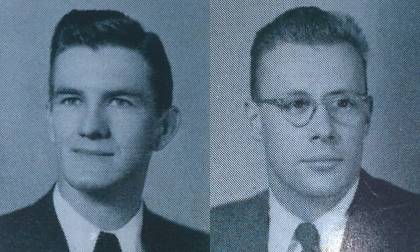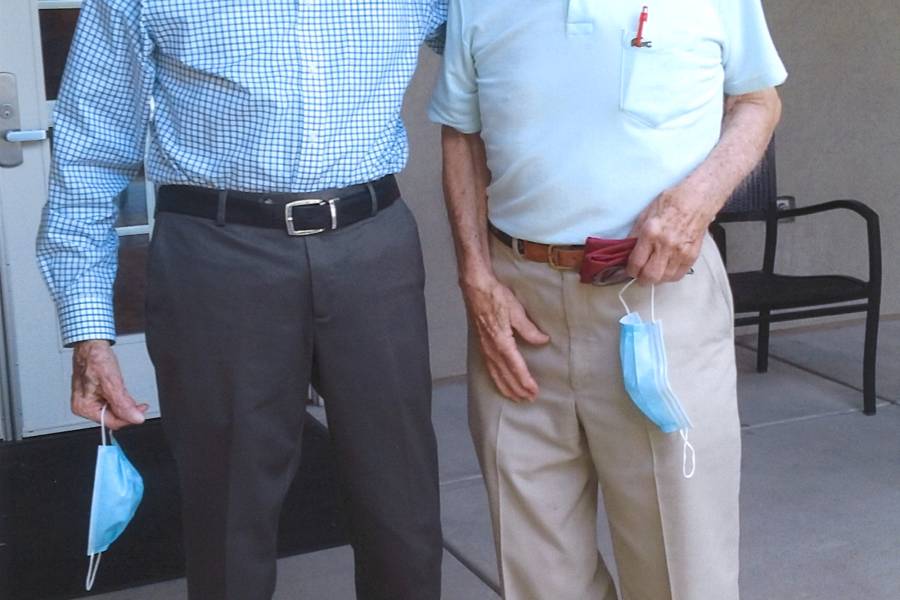Around Christmas in 1944, Army infantryman Paul Hessemer, Engr '49, was staggering through waist-high snow in the forests of southeast Belgium. In the skies directly above, Francis "Bud" Holecheck, Engr '49—an Air Force second lieutenant who was then a stranger to Hessemer but would later become his groomsman—was piloting a Lockheed P-38 Lightning.
"We found out I was flying strafing and dive-bombing missions right in the area where Paul was trying to keep alive against ground soldiers as well as our bombs going off," Holecheck said in a recent interview. "It's an odd world."
That was the final winter of World War II, when both men were 19. In the years following, they became close friends as engineering students at Johns Hopkins, but it wasn't until they reunited recently that they learned of their counterpart locations during the Battle of the Bulge, the last major German offensive on the Western front.
As Hessemer recalls, veterans studying at Johns Hopkins in those days weren't inclined to talk much about their wartime experiences. "I think we put the war behind us," he says. "There was an attitude of 'Hey, let's stop fooling around and not lose any more time.'"

Image caption: Photos of Bud Holecheck, left, and Paul Hessemer from the 1949 Hullabaloo
Before summer 2021, the last time the two friends saw each other was June 4, 1949, the date of Hessemer's wedding and the day after their last final exam. They loosely kept track of each other—"I knew where Bud was, and he knew where I was," Hessemer says—but on a recent phone call, they decided it was high time to reunite in person. On Aug. 10, 2021, Holecheck, who still drives at age 96, made the two-hour trip from his home in Chester, Maryland, to see Hessemer in New Holland, Pennsylvania. The two men spent the afternoon reminiscing.
Hessemer and Holecheck say they first met as part of a Johns Hopkins program allowing World War II veterans to compress their freshman studies into an accelerated schedule. "There was no social life on campus, just work your tail off," Holecheck says. "We were there for a mission."
But the two became friends and sometimes met off campus for double dates. They both got married while at Hopkins, then started careers and families. Holecheck and Hessemer cherish their long marriages—each lasting more than 60 years—but are now widowers.
After the August visit, the two friends found a second time to meet up in September. They share a sense of making up for lost time.
During an interview, Hessemer directed an aside to Holecheck: "I'm determined to get together again—aren't you?"
Holecheck agreed. "All we need is the good Lord's presence," he said.
Posted in Alumni
Tagged veterans, world war ii, friends for life








